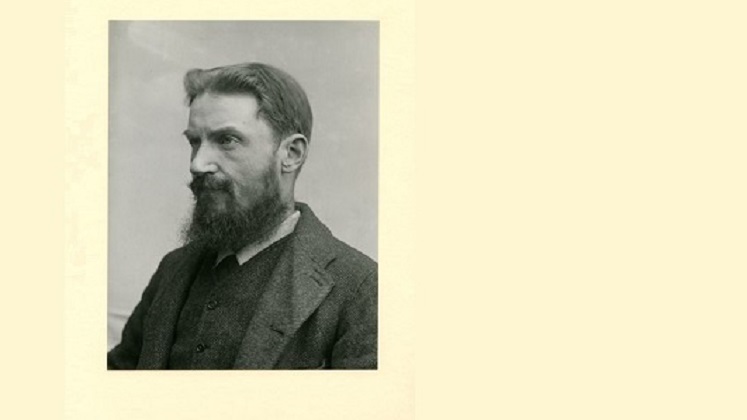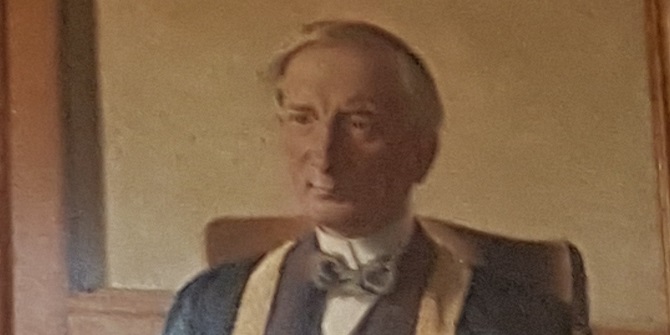Chaired by Sidney Webb, LSE’s first Board of Governors was established in 1901 and its seventeen members included two women. From joining the University of London to becoming incorporated under the Companies Act, Sue Donnelly introduces the story behind the first Board of Governors.
On 15 March 1900, barely five years after the School’s foundation, Sidney Webb informed the Hutchinson Trustees that the School’s application to join the University of London had been accepted. The University of London established a Faculty of Economics and Political Science and ten LSE lecturers became recognised teachers of the University of London. The first degrees focussed on the social sciences began the following year – the BSc (Econ) and the DSc (Econ).
However, joining the University of London raised another issue – what sort of legal entity was the School?
Many universities are formed under a Royal Charter but achieving this would take time and does not seem to have been seriously considered at this date. Instead the School took a quicker and simpler approach becoming incorporated under the Companies Act as a company limited by guarantee.
An application was made to the Board of Trade, signed by seven members of the School’s Advisory Committee an on 13 June 1901 the “Incorporated London School of Economics” was registered. The Memorandum and Articles allowed the School to continue its established business and develop study and research in the social sciences. LSE could hold property, and the authority to run the School’s business was placed in the hands of a Board of Governors – with Sidney Webb as Chairman.
There were seventeen people on the first Board including two women:
Jervoise Athelstan Baines, Governor 1901-1926
Baines (1847-1925) served in the Indian Civil Service from 1870 to 1893 and acted as the Secretary to the Royal Commission on Opium, 1894 to 1895. He was a London County Council alderman and represented the Technical Education Board of the University of London.
Hubert Bland, Governor 1901-1914
Bland (1855-1914) was a journalist and one of the founders of the Fabian Society, acting as Treasurer from 1884-1911. In 1880 he married the writer Enid Nesbit, famous for her children’s novels.
William Garnett, Governor 1901-1932
Garnett (1850-1932) was a physicist and educational administrator who had worked at Durham and Cambridge Universities. From 1893 to 1904 he was educational adviser to the Technical Education Board of London County Council, then under Sidney Webb’s chairmanship, and from 1904 to 1915 to the LCC. He was closely involved in the re-organisation of the University of London. After Garnett’s retirement in 1915 he chaired the Educational Reform Council and organised courses for Britons interned in Switzerland.
Sir Robert Giffen, Governor 1901-1910
Giffen (1837-1910) was a statistician and economist who began his career as a journalist at the Globe and later the Economist. His interest in statistics led to his appointment as Chief of the Statistical Department Board of Trade, 1876-82 and he was promoted to Assistant Secretary Board of Trade. In 1882 he was appointed Controller-General of the Commercial, Labour, and Statistical Departments where his aim was to produce an efficient central statistical office. Giffen was President of Statistical Society, 1882-84 and a founding member of the Royal Economic Society.
Richard Burdon Haldane, Governor 1901-1907
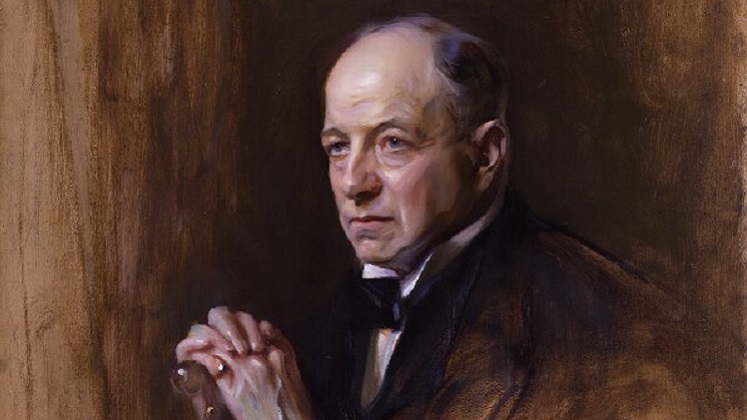
Haldane (1856-1928) was a lawyer, Liberal MP and educationalist who was Secretary of State for War, 1905-1912 and Lord Chancellor 1912-1915. He became Viscount Haldane in 1911. He was a supporter of LSE and provided the legal advice supporting the use of the Hutchinson bequest for the establishment of LSE. As Secretary of State for War he was instrumental in the establishment of the Army Class at LSE, working with the then Director, Sir Halford Mackinder.
Sir Courtenay Ilbert, Governor 1901-1923
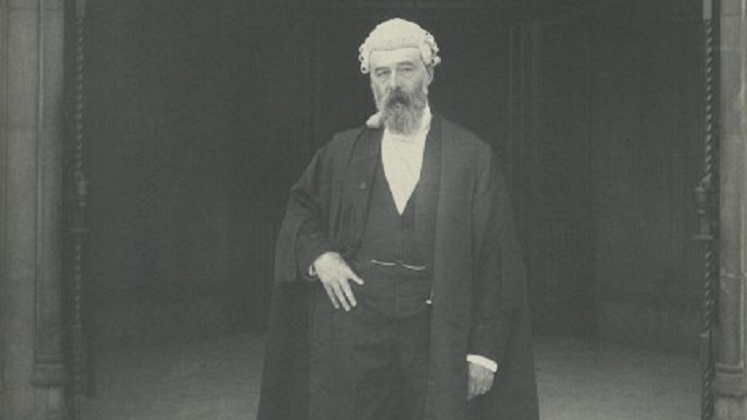
Ilbert (1841-1924) was a barrister whose expertise in drafting legal documents led to his appointment as the legal member of the Viceroy of India’s Council from 1882 to 1886, where he also served as Vice Chancellor of Calcutta University. The 1883 Ilbert Bill removed judicial restrictions based on race and allowed Indian judges to pass judgement on Europeans in certain circumstances. The Bill was fiercely debated and opposed and was passed in a heavily modified form. On his return to England he became assistant parliamentary council to the Treasury and from 1902 he was clerk of the House of Commons.
Sir Alfred Lyall, Governor 1901-1911
Lyall (1835-1911) was an Indian administrator in the Bengal Civil Service. He was Lieutenant-Governor of the North-West Provinces, India, 1882-87 and a member of the Council of Secretary of State for India, 1888-1902. The Oxford Dictionary of National Biography describes him as a “liberal authoritarian”.
Joseph Francis Oakeshott, Governor 1901-1945
Oakeshott (1860-1945) was a socialist activist and author. He joined the civil service at 16 and rose to become a principal clerk in the Inland Revenue. He joined the Fabian Society in 1888, becoming an active writer and speaker. His son, Michael Oakeshott, was later Professor of Political Science at LSE.
Edward Pease, Governor 1901-1945
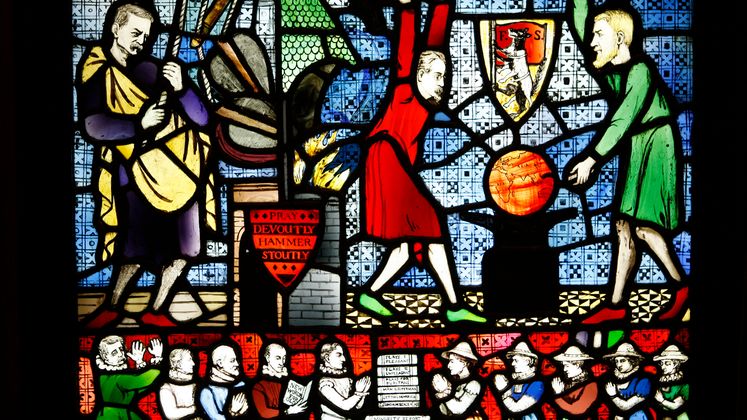
Pease (1857-1955) was a founding member of the Fabian Society and served as its Secretary from 1889. He also, from 1900-1913, was the Fabian Society representative on the Labour Party national executive committee. Throughout, he worked closely with Sidney Webb. Pease is depicted in the top left-hand corner of the Fabian Window, installed in LSE’s Shaw Library, in medieval dress.
William Pember Reeves, Governor 1901-1908
Pember Reeves (1857-1932) was a New Zealand journalist and politician who came to London in 1896 as New Zealand agent-general (from 1905 High Commissioner) representing the country’s economic interests. He moved in the capital’s progressive circles. After his resignation as High Commissioner in 1908 Pember Reeves became Director of LSE and remained in post throughout World War One. Despite being an effective financial administrator, the death of his son Fabian in 1917 led to a long period of depression and he was replaced by William Beveridge in 1919.
Lionel Walter Rothschild, Governor 1901-1929
Rothschild (1886-1937) combined his duties at N M Rothschild & Sons with being MP for Aylesbury and a serious and sustained interest in zoology. He became second Baron Rothschild in 1915.
Bertrand Russell, Governor 1901-1906
Bertrand Russell (1872-1970), who became third Earl Russell in 1931, had a varied career as a mathematician, philosopher, journalist and political campaigner. In 1950 he won the Nobel Prize for Literature. At LSE, prior to being a Governor, he was one of the School’s earliest lecturers, teaching history in 1895-1896.
Herbert L Samuel, Governor 1901-1945
Herbert Samuel (1870-1963) was a Liberal MP, becoming first Viscount Samuel in 1937 and holding several offices of state including Chancellor of the Duchy of Lancaster (with a seat in the Cabinet), 1909-10 and 1915-16; Postmaster-General 1910-14 and 1915-16; President of the Local Government Board 1914-15; Secretary of State for Home Affairs 1916 and 1931-1932. From 1920-1925 he was High Commissioner to Palestine.
Charlotte Shaw, Governor 1901-1922
Charlotte Shaw (1857-1943) was a suffragette and Fabian Society supporter. Married to G Bernard Shaw in 1898 she was a supporter of the School’s activities serving as a Governor and member of Library Committee and supporting a research scholarship for women students and the establishment of the Shaw Library.
Beatrice Webb, Governor 1901-1928
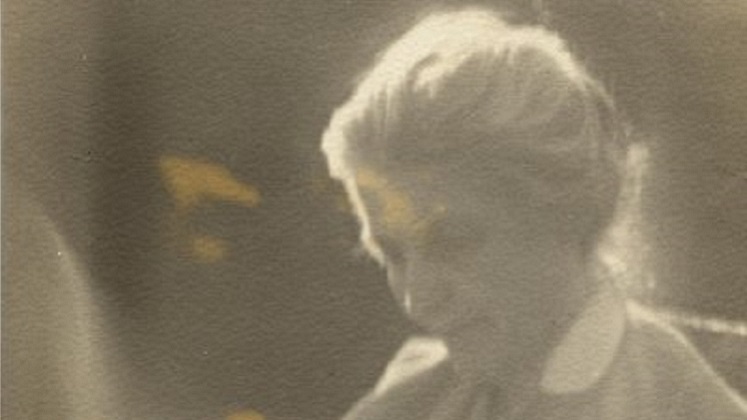
Beatrice Webb (1858-1943) was one LSE’s founders and early teachers. Along with her husband Sidney Webb, she was a significant figure in the life of the School prior to the Second World War, and a supporter of the League of Nations Union.
Frederick Whelan, Governor 1901-1945
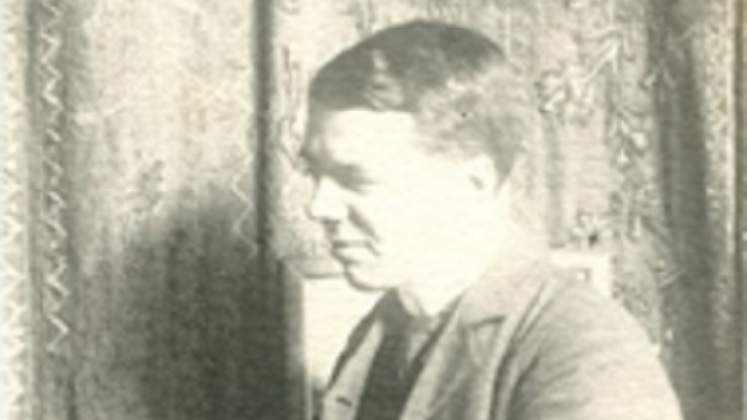
Whelan (1867-1955) was a member of the Fabian Society and author of a tract on poor law reform. He was a founder of the Stage Society which mounted private performances of new and experimental plays – particularly those banned from public performance by the Lord Chamberlain. He was also a supporter of the League of Nations Union. During the Second World War he was interned in France.
Edward Arthur Whittuck, Governor 1901-1924
Whittuck (1844-1924) was a legal scholar with an interest in international law. He was instrumental in the deposit of the Fry Library at the School and made an endowment of £1,500 to support the teaching of commercial law.
This post was originally published to mark LSE’s 125th anniversary in 2020/21.


